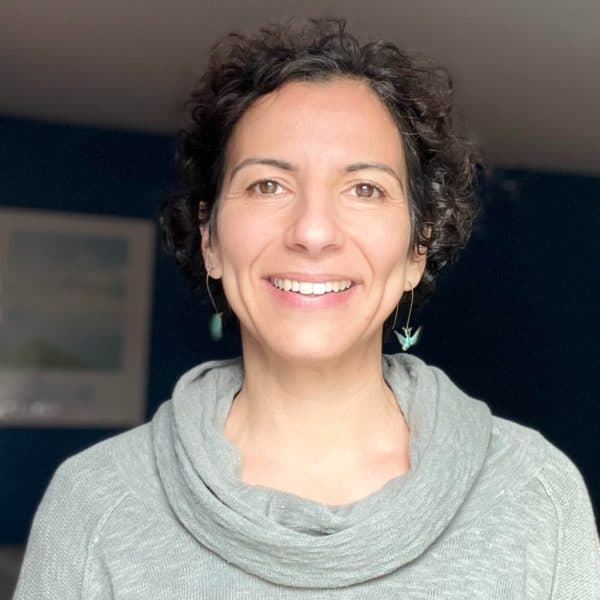Advertisement
Commentary
I'm a psychologist. As new patients wait, I wonder how much I can help

During a recent virtual therapy session, a young patient with a long and complex psychiatric history whose father is slowly dying looks straight at me through the camera.
“So I have been waiting close to a year to see you, and you are telling me you can only see me for a few months. Um, and then what happens?”
I know what to say. I say it all the time to new patients in the large outpatient hospital clinic where I work. “Yes, unfortunately, the need is great these days and I’m sorry it is like this. Let’s think together about specific goals that we can work on during the time that we have.”
My patient nods, and the thought I suspect we are both having — “Why does this feel so off?” — is engulfed in a brief and awkward silence. There is a gap between the optimistic reach of my words and the disquiet lodged in the back of my throat.
This feels off because of the dissonant undertones that remain unspoken: We both know that a few months of therapy will only go so far, that our relationship will begin and end, that his father will die and that his distress will likely endure. Neither of us has a solid answer as to what happens next with his care, whether and when he will connect with another therapist, and whether that therapy will also have a predetermined end date.
We both know that a few months of therapy will only go so far ... that his father will die and that his distress will likely endure.
The logistical post-COVID reality of the surge in mental health need demands a rational response. My emotions don’t seem to be keeping up. COVID unleashed a deluge in demand for mental health treatment that is not slowing down. Pre-pandemic, there were already long waits for new psychiatry appointments. Post-pandemic, these waits skyrocketed: Our outpatient department had a waitlist of close to 900 people in late July. Earlier this summer, new patients were already booked in my calendar through the next 10 months. I try to imagine having to wait 10 months for an appointment. In pain. I can’t, really.
I remember seeing the images of the long lines of cars waiting for hours at food pantries in 2020. The difference is that a waitlist has no tangible form. There are no cameras here to document the hundreds of patients waiting to be seen in our clinic. More recently, the overwhelm in new referrals has led our clinic to decide not to book new patients beyond six months out. I feel my smallness in a bucket of need that will not stop overflowing.
As patients wait, I cannot stop working. Pre-pandemic, my caseload was generally full, but new patients sometimes didn't show and others moved on, allowing me to see some patients for longer-term therapy. Since the pandemic, no-shows are infrequent, and symptoms are more acute. To prevent my caseload from ballooning to unmanageable proportions, I must tailor the work to a time-limited frame.
New patients are constantly added to my calendar. I keep track of comings and goings through an Excel spreadsheet, and have calculated that I have about 16 weeks to do therapy to make space for new patients. Time management happens to be a skill I possess, sharpened through my years as a single mother of two spirited boys. I have always thought that the key to mastering single motherhood is knowing how to use a finite amount of time wisely.
The repetitive goodbyes feel scorching.
In my work, I keep a sharp focus on the treatment plan and the time we have, redirecting the overly loquacious and the over-detailed ruminators -- there is no time here to engage in conversational wanderings. We must stay focused on goals. My patients and I try to carve out specific pieces of work. And it often feels like we are carving water, with more distress pouring in despite our progress. And then we must end.
Termination feels more often like a structural necessity than a natural one. And it is my very sense of purpose that is feeling blurred at the edges, unraveling. The repetitive goodbyes feel scorching. I think of the single mom whose boyfriend left her during the pandemic. She has panic attacks, chronic health conditions and cannot work. She has no affordable childcare. I tell myself I must find a way to keep seeing her. She has gone through so many transitions. Where will she go next? I can’t end. I must end. There are many more people waiting to be seen.
There is a wait of several months to community clinics where longer-term therapy may be an option, and even longer for patients with Medicare. In short, they should already be on a waitlist for a community clinic at the start of their work with me. Private practice clinicians, many of whom do not take insurance, are a luxury for the few who can afford $200-$300 for a therapy session. And for the majority who can't, wait, uncertainty and possible lack of follow-up care are in store.
Over the past two years, my attempts at being helpful feel undermined by this endless circular belt I am running on, the pressure to see more new patients, the endings that feel not quite right, the sense of abandoning people in a sea of uncertainty. Under a veneer of carrying on, part of me is sliding into a morass of skepticism and disengagement. I worry that my doubts will percolate into my work, with negative impacts on therapeutic outcome. Who wants to be treated by a therapist who struggles to believe in the system that is supposed to be helping?
My next session starts, and a recently sober, heavily depressed patient had taken a step: She had gotten dressed and walked herself over to an AA meeting. “That was hard,” she says. “I got through this massive panic. It was kind of cool how I did that.”
She doesn’t smile but the spunk in her eyes reaches across the screen and grabs me by the shoulders. A wave of alertness spreads through me. For a few seconds, my turmoil recedes, time slows down and we both slow down in it. And I am aware that it is times like this, like flowers growing in impossible places, that keep me alive as a therapist.
